Doris Day Appreciation: Why Did Oscar Elude A Shining Star Of So Many Talents?
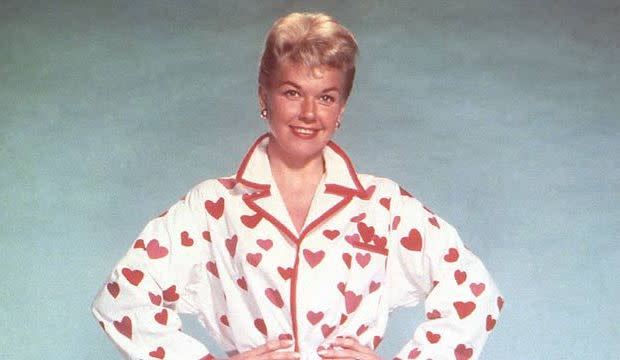
Whenever the subject of who should get Honorary Oscars — or the Governors Awards, as they now are known — comes up, there has not been a single year, not one, when Doris Day’s name was not at the top of the speculation. But it never happened. The Academy’s Board of Governors never even went the Debbie Reynolds route by voting this renowned animal-rights activist the Jean Hersholt Humanitarian Award, perhaps because it has human in its title. Although she often referred to herself as the girl singer in the band, her remarkable movie career spanned a couple of decades during the 50’s and 60’s, and about three dozen movies — frequently in what might be known as Doris Day movies — and maybe that is why the Academy never honored her. Or perhaps they just knew this star, who retreated from the business almost entirely, never would show up. Still, in her big-screen prime, there was no one, then or now, who was bigger or more beloved.

Related stories
Hollywood Remembers Doris Day: Paul McCartney, Tony Bennett, Goldie Hawn Sing Icon's Praises
Day, who died today of pneumonia at the ripe old age of 97, had only one flirtation with Oscar: a Best Actress nomination for 1959’s massive comedy hit Pillow Talk, the first of three hugely successful teamings with Rock Hudson. The split-screen bath the pair took together during the film’s opening is worth the price of admission and showed a sexier

side of Day in movies. She lost to Simone Signoret in Room at the Top and that was it for Day’s dance with Oscar, but she did win several Golden Globes for what they called “World Film Favorite” and a special Cecil B. DeMille Award for which she did show up 30 years ago. But there were no Kennedy Center Honors, no AFI Life Achievement Awards, no Emmy nominations, despite some well-received variety specials and a five-season sitcom that became her acting swan song when it went off in 1973. This iconic singer did finally get a Life Achievement Grammy in 2009, but those barely even get mentioned on the Grammy show. Showbiz simply didn’t shower her with the awards attention her extraordinary career deserved, and she never was reduced to groveling for it. In terms of Oscars, Day might never have won one herself, but she did introduce two immortal Academy Award-winning songs in her films: “Secret Love” in 1953’s Calamity Jane, and then her best-known hit, “Que Sera Sera (Whatever Will Be Will Be)” which she sang in 1956’s Alfred Hitchcock thriller The Man Who Knew Too Much.
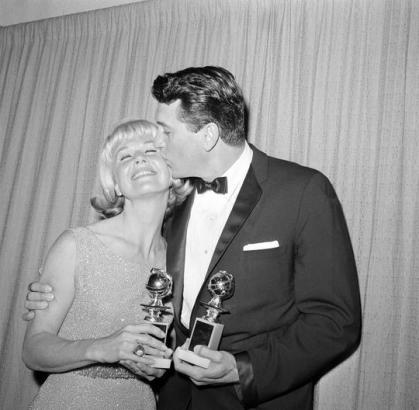
I believe I have seen just about every Day movie, some of them several times. Just recently I revisited 1963’s Cinemascope Fox comedy Move Over Darling, and I don’t know how many times I have seen it (a lot), but she nails it, especially when impersonating a Swedish masseuse giving Polly Bergen the works. I also recently rewatched a personal favorite she did with Jack Lemmon, 1959’s It Happened to Jane. It was pure Day, even though it was one of her rare flops in her heyday. Columbia even tried unsuccessfully to salvage it by re-releasing it with a new name, Twinkle and Shine, two words that certainly describe much of what Day did on screen.
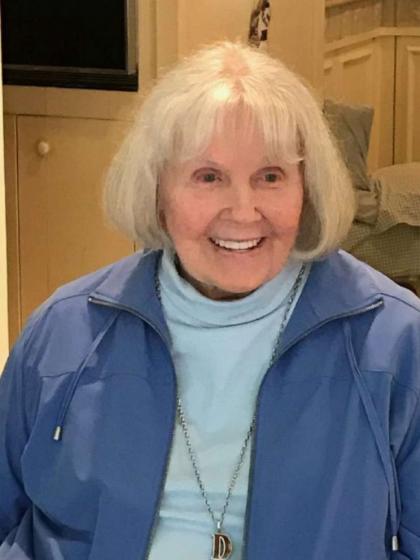
It seems like there wasn’t a top leading man of the ’50s and ’60s who didn’t rush to work with her: Gable, Grant, Sinatra, Stewart, Cagney, Douglas, Garner and on and on. She was unique in the film world, a No. 1 — box office star for the better part of a decade, but it would have been amazing to see her do some unexpected things. There is an urban myth that Mike Nichols offered her the Mrs. Robinson role in The Graduate, and certainly that would have been an eye opener. She definitely had the acting chops to do it, but the film’s producer Lawrence Turman said it never got farther than sending the original book to Day’s then-husband/manager Martin Melcher (he blew through her millions and left her bankrupt). He reportedly was repulsed by the idea, thinking it was dirty, and never even showed it to her. Anne Bancroft eventually played the role and won an Oscar nomination. The Graduate with Doris Day? Consider the possibilities if she really tried to shed that sweetheart image at a key changing moment in the movie industry. Instead she would walk away forever from motion pictures the next year in two fluffy forgotten Day vehicles, Where Were You When the Lights Went Out? and With Six You Get Eggroll.
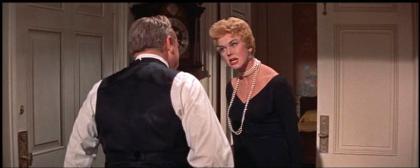
In films that were worthy of her talents she really was good, and I think highly underrated as a dramatic actress and a comedienne on par with Lucy. Her work with Hudson in Pillow Talk (which won the Oscar for Original Screenplay in 1959), and their follow-up Lover Come Back (which got an Original Screenplay nomination in 1961) was first rate, just as she was with Cary Grant in 1962’s That Touch of Mink and with Clark Gable in Teacher’s Pet (1958) (two more comic gems with Oscar nominated scripts, proving she knew how to pick ’em and inspire writers given half the chance). A personal favorite is another 1963 comedy in which she co-starred with James Garner, director Norman Jewison’s The Thrill of It All; she is hilarious as a housewife who stumbles into a job doing television commercials for Happy Soap. Her dramatic work in movies like The Man Who Knew Too Much, Julie, Young Man With a Horn, and even Ross Hunter’s glossy thriller Midnight Lace always was impressive even when the scripts let her down. None more so than the 1955 biopic, Love Me or Leave Me, in which she was sensational as singer Ruth Etting trying to escape the clutches of gangster James Cagney. Find it and watch it, perhaps her best screen performance. In fact TCM just announced a 24-hour marathon of her movies as a tribute on June 9 and that one is included.
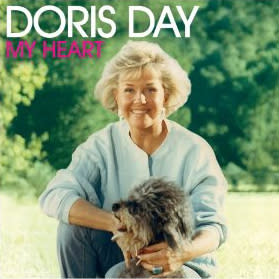
Day, of course, made lots of musicals, including early ones that don’t leave much of a lasting impression, but she hit her stride in such tuners as Calamity Jane, Jumbo and my favorite, 1957’s Pajama Game, which I just saw again on the big screen in a pristine 35MM print, and she hit it out of the park. Day was hired to give it Hollywood star power since most of the cast were repeating their original Broadway roles. In later years Day dabbled occasionally in the recording world, and her final studio album, My Heart, featuring songs recorded originally in the mid-’80s for her animal-focused TV show, Doris Day’s Best Friends, saw her at age 89 in 2011 becoming the oldest artist to score a Top 10 UK record with new material. The music of this “girl singer,” the movies of this superstar, and the foundation of this humanimaltarian thankfully will live on.
Those four-legged creatures she so cared about are going to miss her. So will we all.
Sign up for Deadline's Newsletter. For the latest news, follow us on Facebook, Twitter, and Instagram.
